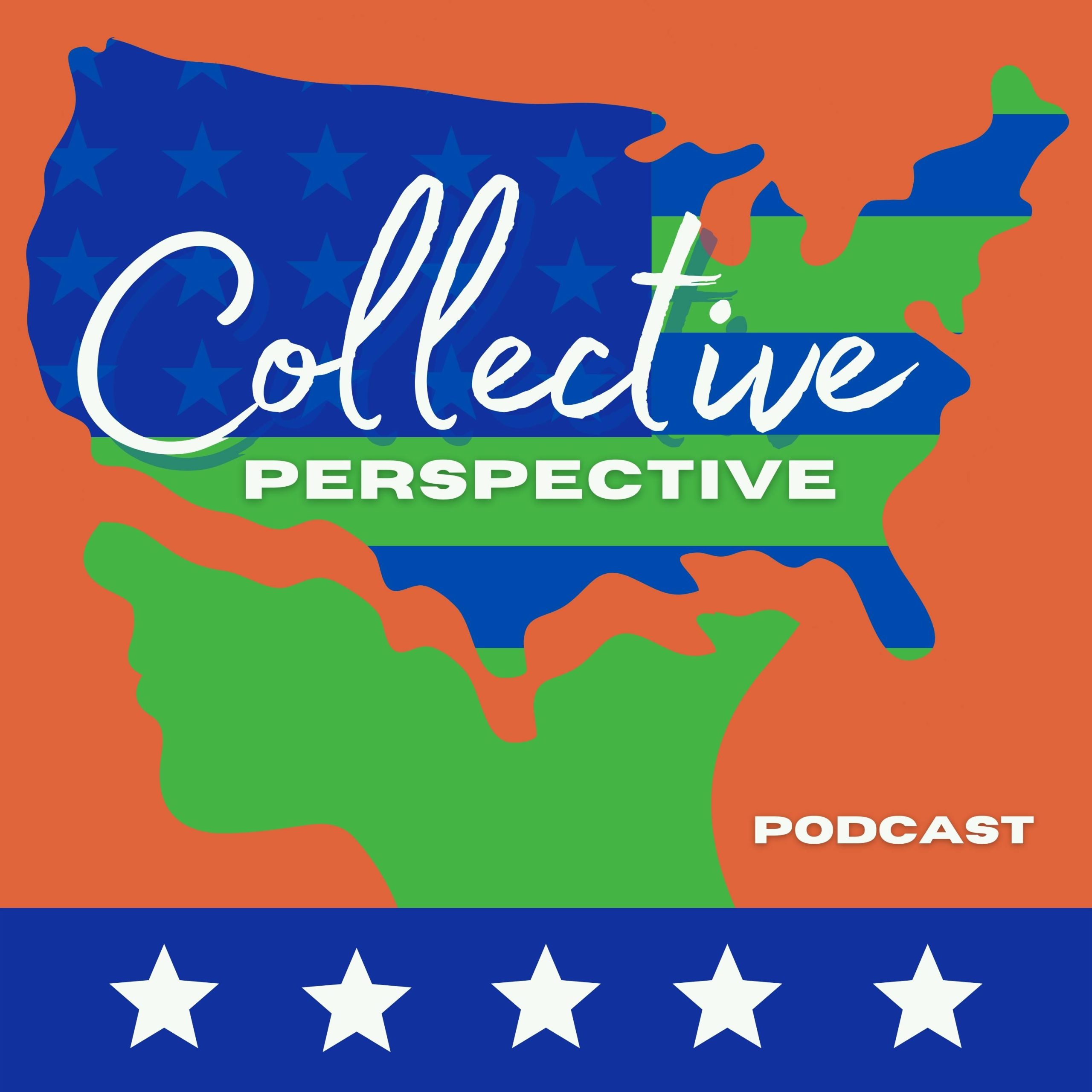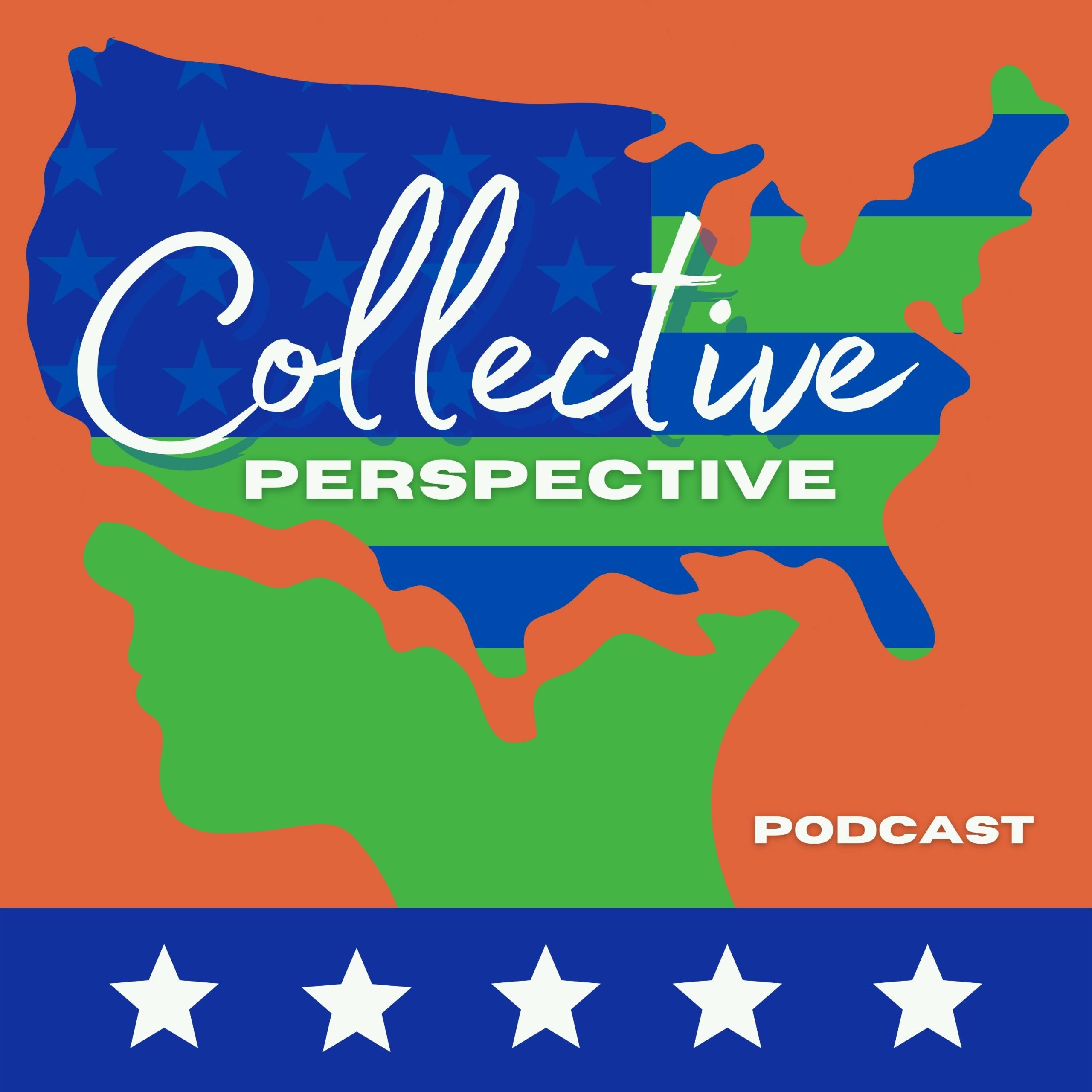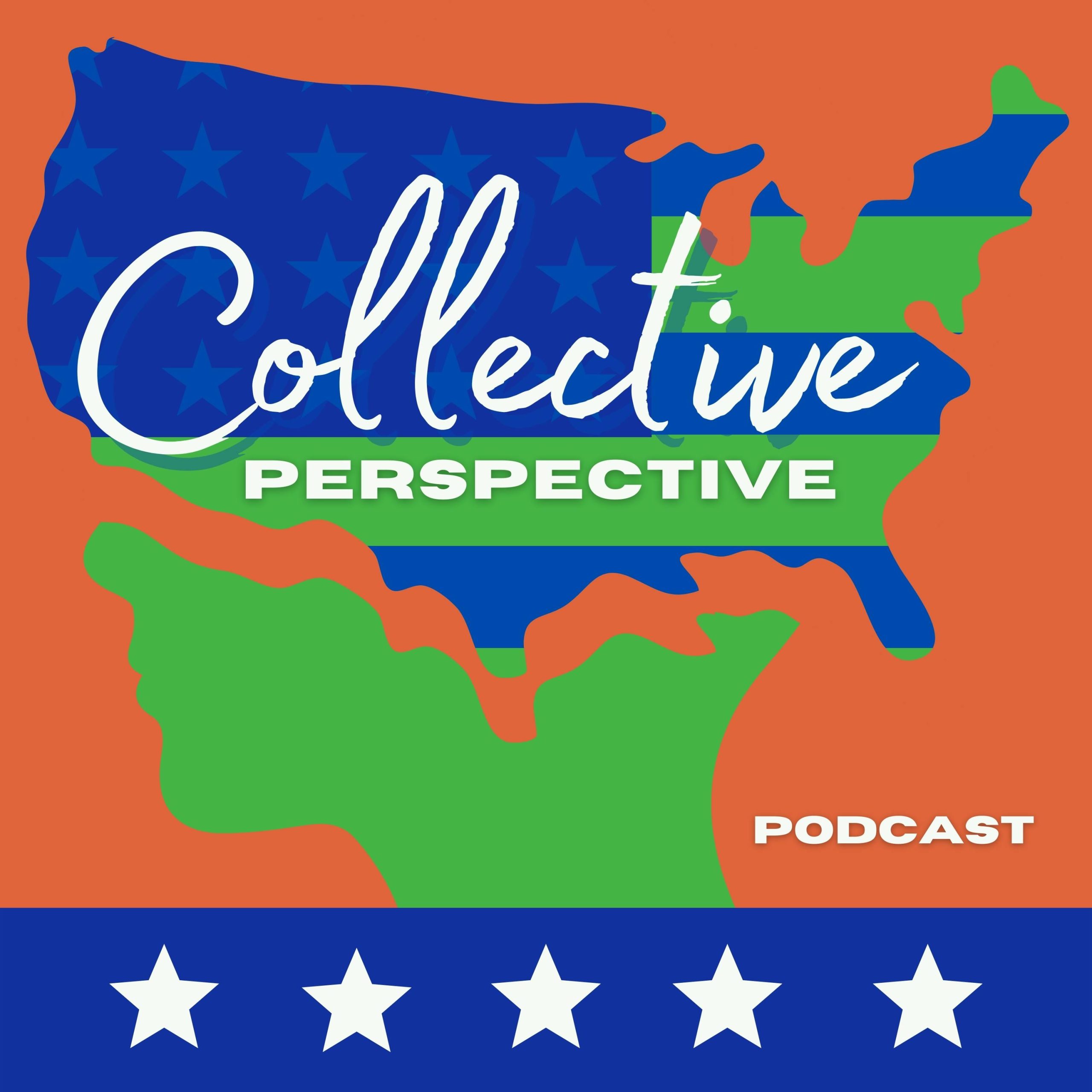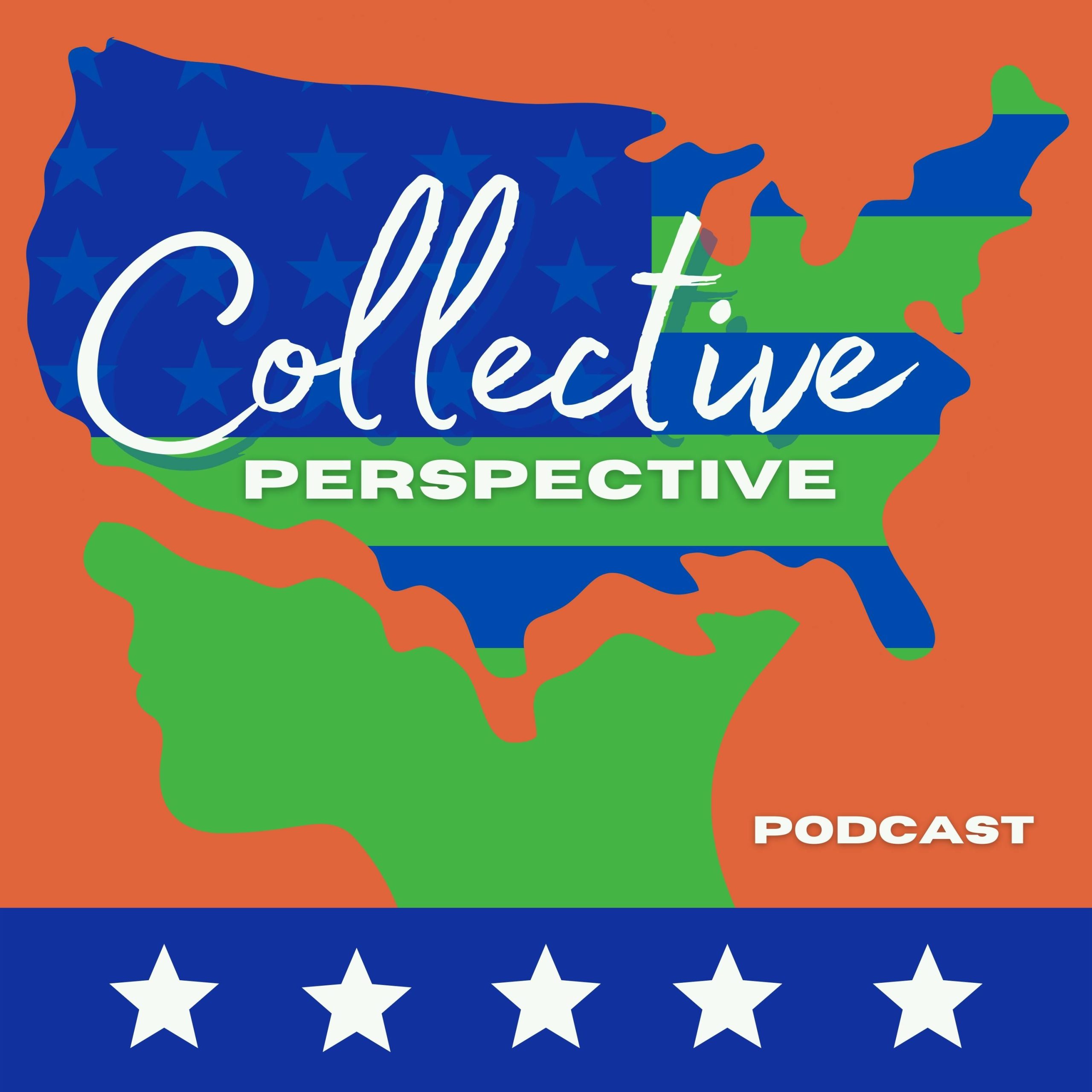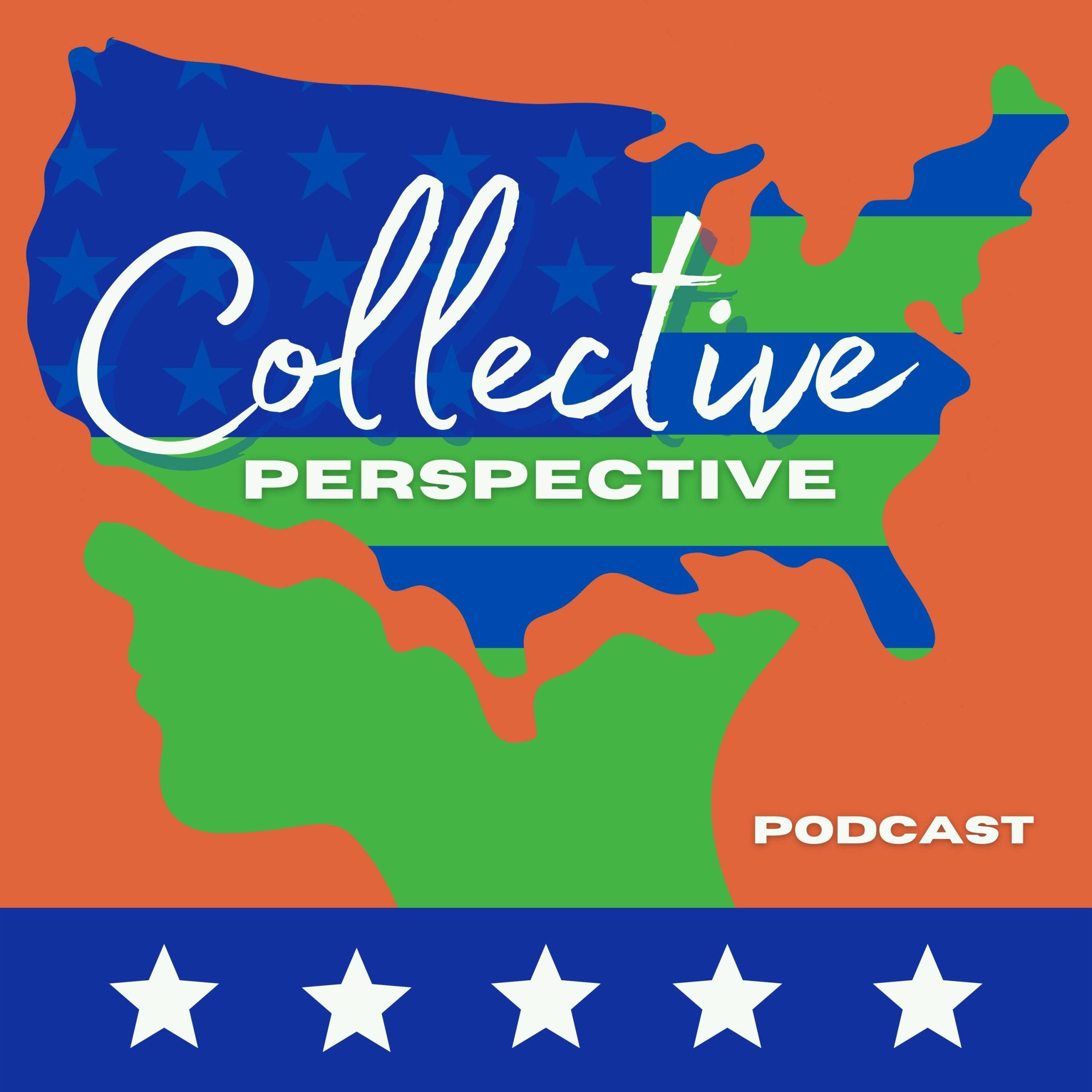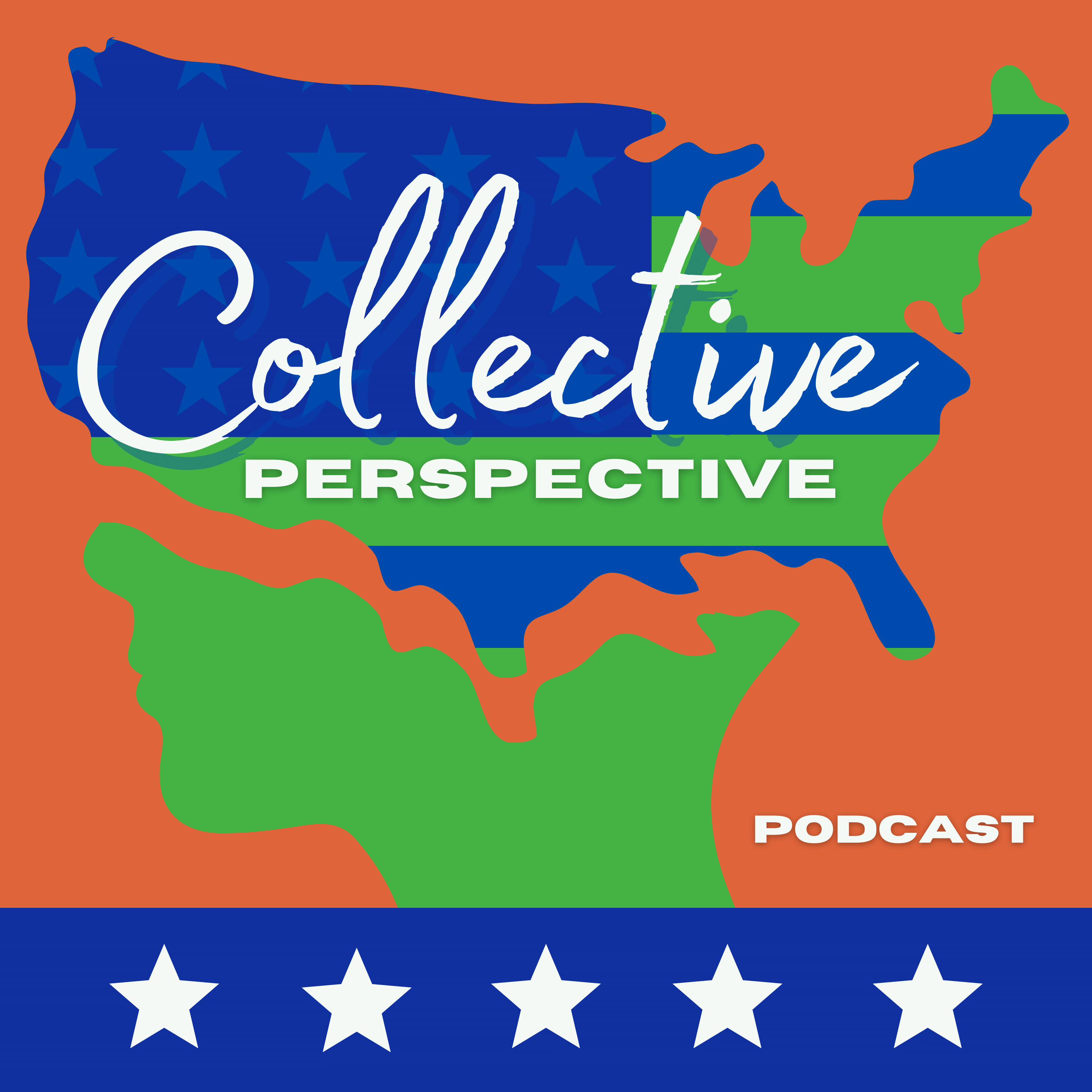In the world of disinformation and propaganda, certain people with personality traits lead to many degrees of manipulation. Once you realize the difference between manipulation and persuasion, you understand that your kids at a young age are just trying to persuade you with boundaries. Manipulation carries such a bigger weight of intent as leaders in society use it to get their way or convince you to vote for them or buy their products. This episode explores the topic deeper. Thank you Sage for your perspective.
View Full Transcript
Episode Transcript
My experience with manipulation was through the court system and also with my parents. My mom and dad separated when I was six and the ensuing legal battle lasted for about a decade. And being between trying to give a police officer a testimony or trying to explain to like a, a family counselor what was going on, you know, the, the impact that manipulation had on me was, I, I really never felt like there was a truth.
to my life. There were so many pieces of information that I was receiving from my dad or from my mom or from the state or whatever that I wanted to believe were true or that felt true, but I realized that there is no like black and white entirely. Like the truth can be many different things at the same time.
I got diagnosed with a personality disorder and it was So life changing that I was like, I feel like this thing, whatever happens to your mind when you're on psychedelics, really has the potential to open you up to yourself. And I don't know, it became a little less scary to acknowledge the dark side of myself.
Because my ego wasn't there to get in the way of it. The Collective Perspective is set out on a mission to understand some of the most impactful and controversial trends and topics in our lives today. Hi, I'm Jeff. Hi, I'm Travis. Hi, I'm Juwan. Can we find common ground in the middle, in a peaceful manner, but with real community benefit?
We believe as veterans and concerted citizens, we are striving to bring together diverse views with fact based research to navigate this tough terrain in a search of a viable path forward. How do we unify as Americans and prove we aren't all that much different. So meet us in the middle, not the left or the right.
In season two, we have decided to focus on researching and exposing fake news and fake information. We're tired of the media lying to us. We're tired of the fake news. We're tired of the government lying to us. We want to know the truth. And our mission is to seek the truth everybody This is the collective perspective podcast and we're here in sunny jacksonville, florida talking to you from that kind of recording studio Hey everybody, welcome back to the collective perspective.
This is jeff and this is travis and this is what what's up fellas? What's up, bro? How's it going today? We're gonna Kind of take a daunting task. I think in a way maybe it's just the term but today we're going to talk about dark psychology And dark psychology is the study of the human condition in relation to the psychological nature of humans to prey on others Dark psychology is a phenomenon which people use tactics of motivation persuasion Manipulation coercion to get what they want.
Hey Jeff. Is that illegal? Uh, what do I look like a cop? We're like a lawyer to you? No, just kidding. No, yes and no. Once the manipulating conditions affect someone's personal life, their rights, then yes. Believe it or not, we're being manipulated all the time. I could say even down to there are some pastors in church that manipulate people.
Right, Jawad? Now, does it come down to, again, like with one of our previous episodes, intention? It's all about the intention. If it's, there's a different, there's two words that we're really talking about here, and I already mentioned one of 'em. I already mentioned both of them. Manipulation and persuasion.
They're very close related, and what really flips the coin is the intent. I can persuade you, persuading you, is trying to get you to do something that is good for you, that you're gonna benefit from it like you should pray or my opinion. My opinion, it's good for you. In my opinion, it's good for you. In my opinion, not just in general.
But see, that's my intent, is to offer you something good. I'm trying to persuade you to do this. Like, hey, you should buy this microphone. This microphone's really good. It's gonna make your voice sound well. The Dynacaster DCM6. I just want to say, since you said that, thank you SE Electronics for your donation of the DCM 8 and the DCM 6.
We really love these microphones. Awesome mics. As a field of study, dark psychology is not illegal. It's an academic discipline focused on understanding harmful human traits and behaviors. So when it becomes illegal is during certain activities. Sometimes the manipulative actions are illegal if they infringe on another person's rights or violate laws.
That's when it becomes illegal. For example, a politician may use dark psychology to manipulate the media into presenting them favorable. A salesperson uses manipulation tactics to convince potential customers to purchase a product that they don't need. As a salesperson myself, I say BS because I only offer things people do need.
If they don't want it, then I'm not trying to manipulate them into anything. I find myself more of a solution provider than a sales guy. I think that's more of car salesman. And there are people that are out there selling something that are giving you misinformation about what the product is or what it does.
I would never lie to my customer. I think that car salesmen could be close to that dark manipulation or dark psychology and bordering on illegal and how they present certain vehicles. If you ask someone for the car facts or, no, you don't ask for it, you say, Hey, is, has this car been an accident? I don't know.
I'll look at this. This thing's in great shape. When you do further research, find out that it wasn't a car accident, you were manipulated, you were told and you believed that they were being honest with you, when in fact they weren't. They're trying to make the sale to get that commission. And your boss may use dark psychology to control employees and keep them in line.
Right, CEO Blackrock? Or, like you said in religion, you use religion as a form of manipulation for your parishioners. Right, and let's clarify that because there are a lot of pastors that don't. They're very nonchalant, I guess is a good term, or passive, like, Hey, we're a member driven church, please donate, that would be great, basically.
Then there's the pastor that says, You are sinful, you are bad, you are bad, you're a bad, and the only way out of it is to tithe. Pretty much. One, one perspective. Yeah, well yeah, I'm not into stereotyping, so I wouldn't say that all of pastors do that. I'm just saying, the last church I worked for did. Your daughter went to, is she still in a Catholic school?
No, she's out on the beach now doing... School online. It was Protestant. She did start that school that she went to one of my neighbors. You're right She did start Catholic and then she went Protestant. Okay, she did change my neighbors in one of the neighborhoods We lived in here in Fleming Island. Their kids went to a Catholic school I think it was Catholics are crazy, dude, and for them to be able to go to that school They had to tithe a certain amount of money the the church knew how much each of them made and they said we need at least this much in tithing On top of the tuition and everything else or volunteer or you're gonna have to pay more if you don't volunteer You can volunteer and you'll pay less if you volunteer you got a discount, but you're still paying I mean that that's not a persuasion at that point.
That's yeah, that's using tactics there manipulation I guess the premise of the gospel is free will it's what you desire to do not forced to do or manipulate it Like you say But hey, let's say some pastors need a pool, you know what I mean? That was in the news around here in our area just last year, I think.
I'm not saying that I dislike Christianity or Bible stuff, I'm just saying that there is good and bad. There is manipulation and there's persuasion. And I was just going to say that. I guess when you know the truth about something and it's a requirement, a biblical requirement. Sometimes that's persuading someone, Hey, this is the right thing to do.
But with the right intent, the right heart of it. You know what I'm saying? So, I think the manipulative part of it is scare tactic. The persuasive side of it, that's positive. The persuasive side of it is knowing the truth of it and what pleases God. If you're doing it with your heart, then you're not doing anything wrong.
I agree with you. If you're doing it out of love. Understanding the behaviors in the emotions, motivations and triggers that drive people to act a specific way. Influence and persuasion. Creating false needs and desires and exploiting vulnerabilities. Like you need a shot. Manipulating the environment.
Controlling the information individuals receive. Manipulating the conditions of the where they live and work using physical or psychological threats. Understanding the motivations and triggers that drive people to act a certain way. Someone who would use dark psychology would want to understand that so they can really drive their point home in a covert way.
So that it's not being as obvious to the person that they're manipulating. I would say that either it comes natural. Something that you learned from someone else or you have to study to to really go Okay, this is what I want to set out to do and how am I gonna go about doing that? I think that's where it gets a little scary controlling the information of individuals Receive I couldn't go even on a limb and even say that A president that uses Facebook is controlling what information people receive or use social media because it's not filtered by the media.
Well, then it's uncontrolled, I would say. Well, he's controlling what information he's giving and not allowing other people to interpret what he's saying. Or edit it to their narratives. I guess in a way, so that manipulation. That wouldn't be manipulating or dark psychology. That's just getting the entire message out and it's in completion without.
I guess if you were telling the truth a hundred percent of the time, you can guess. But we can't verify everybody's telling the truth a hundred percent of the time. Just saying I noticed that. That's all. I mean the news media does it. I'm sure the three letter agencies that have social media on their payroll are doing it.
That's controlling the conditions on how people receive. Information, and I could be totally wrong. So that to me, sounds like we're kind of implying that our government is using dark psychology. Oh, I'm not implying to manipulate this. I'm not implying at all Travis, you're saying it outright. Yes, let me say The government is using dark psychology against us.
So let's explore that a little bit. What's what are the main characteristics of someone using dark psychology? narcissists Machiavellian anti social Personality disorders lack of empathy gaslighting emotional manipulation psychological projection So these are some of the characteristics of someone that's using dark psychology or some of the tactics that they would use let's face it The first three I think are more of personality disorders Then there's also something wrong with somebody that doesn't have any empathy for people and definitely something wrong with people gaslighting the first three narcissism Machiavellian ism and antisocial personality disorders Lack of empathy.
I don't think that's like a personality disorder. I think that's a problem with how somebody was brought up or that's not not necessarily a clinical type of thing like the other three are. Well, like our buddy Sage just said had some type of personality disorder because of the way he was raised. Yes, but empathy is, I'm not, I'm not buying that one yet.
Maybe maybe later buy that for a dollar. I watched the new one of those that was actually I thought the new one I I heard it was bad, but it was better than I thought. What's that? Uh robocop. Yeah, it was great Though the new one not the old one. Yeah with uh, with uh, michael keaton in it Yeah, yeah. What is psychological projection?
I think that's gonna be when, uh, somebody, uh, projects what they feel or what they're doing onto someone else to deflect attention from themselves. That's exactly what it is, Travis. Good job, buddy. A little walking dictionary. Well, I, I don't know. It's weird. Words have meanings and I kind of know the meanings of a lot of words.
So does the dictionary. Many people don't use it. He's a dictionary man.
Emotional manipulation. That's the formal word for guilt trip. Ah, ok. Ok. Guilt trip. So there are some, that's exactly right bro. There are certain stages of manipulation, if you're not aware. Flattery, isolation, devaluing, and gaslighting. And here's a big one, fear or violence. Which one would you say that's probably used more than anything?
I would say fear. Fear and violence, and sex, they also. There are different tactics that are used to manipulate. And we're going to go back to, here in a second, uh, the difference between manipulation and persuasion. Manipulation tactics are guilt tripping, lying, flattery, projection. Which we already discussed.
Moving the goalposts, Triangulation, and love bombing. What is love bombing? Those all sound like, uh, something we just talked about in our previous episodes. Propaganda. That's right. So this kind of all ties back to propaganda. Absolutely. Yeah, no, that, that love bombing. Just showering them with flattery. Oh, well, that's another one.
Flattery. What is the term love bombing? From dictionary. com. Love bombing is the practice of showing a person excessive affection and attention as a way of manipulating them in a relationship. The lover boy. No, that's a Romeo, a Romeo. That's what the, that's what they accused Andrew Tate of. Do you know what a Romeo is?
Or like, yes, I do. A Romeo is someone that's trying to use flattery to convince Let's say young female underage to come and be with them. Everything's okay, baby. You're the most beautiful thing in the world. I know you're only 12. Oh my god, it makes me want to throw up. Or, in the urban community, Sugar Mama and Sugar Daddy.
Yeah, but I don't think there's a wrong wrong having Sugar Mama. It's all manipulation. Just means she pays for everything. Nothing's genuine, it's all, it's all selfish intent. So, who's the victim in that case? Sugar Mamas and Sugar Daddies? I would say the person with the money is the victim. I would say the same thing.
Knowing a certain millionaire ourselves, we all know him, I think he's always... Uh, people are always after his money, but his true friends aren't. And I think that's something that really goes un un unnoticed, or... Well, it it's hard to say who the victim is, because the person with the money could say, Hey, yeah, this is just, you know, whatever, this is chump change to me.
And he's getting what he wants, or she's getting what she wants. And when they're done... Yeah, but here's the thing, the genuine friend doesn't get the genuine, it's not reciprocating. So the sugar mama or the sugar daddy needs the person to use them in order to feel relevant. That's what they don't brutally tell anybody.
I think it can be a playful. It is. Well, yeah. It's not the husband that isn't make as much money, stays home and takes care of the kids and says, Oh, that's my sugar mama. She pays for everything. I don't think that's bad. With my downturn in patience, that's kind of me right now. Okay, sugar daddy. No, I got a sugar mama.
Oh yeah, that's right, you do have a sugar mama. And she's sweet, too. She's a sweet lady. Well, thank you. That term isn't applicable, if that's the case. I think it all comes down to intent, right? Yeah, you're right. The heart. Intent. There's that word again. Right. What'd they say about the road to hell? What did they say, Trevor?
It's paved with good intentions. Dirty D's. Good D's do not get you a name.
Only if they're done dirt cheap. You're quoting the satanic band. No, they're not. Is that what ACDC stands for? Anti Christ Devil. After Christ Devil Comes. I don't know, the whole term bad religion of the band isn't really necessarily. Against Christianity or any religion even though they have an anti cross, but it was just meant to piss off older people I think the same thing with Iron Maiden, but they're not singing anything about the devil at all But let's face it sometimes religion is bad.
Isn't that what most of the wars have been fought over? I would say most of the war has been fought over drugs You know, the whole reason why I went to Vietnam, the whole reason why, uh, England took over Hong Kong. Oh, World War III is not gonna be about drugs. World War II about money. Right. I would say most of the wars, uh, I watched this documentary, uh, a while back, many years ago, on the war on drugs, and they were talking about how mostly all wars are based off of drugs.
Even the Crusades? I've seen the majority of wars. That's one of the biggest wars. The Hundred Years War. You know, the whole reason why England went to China was for the opium fields. China wasn't doing the opium though. Not until England introduced it to them. Well, they were just like, this is a pretty flower.
Oh, I feel pretty good. Were they eating it though? The difference between persuasion and manipulation, to persuade someone is to prevail on a person, to do something, as by advising or urging, to induce to believe by appealing to reason or understanding, or to convince them. And that's just it, to convince them.
Manipulate is a little bit different though, it's to manage or influence skillfully, especially in an unfair manner. I think that's the key there. To adapt or change to suit one's purpose or advantage over someone else. I got this from the Institute of Public Speaking. The difference between manipulation and persuasion.
And it kind of lines it all up. Persuasion is positive intentions for others. It's predicated on open and respectful relationships. Value of team members as equals. They use active listening. They convince to impose. Build respect and rapport with the relationship. Use their power to empower others and high emotional intelligence.
Yeah, that's I think the emotional intelligence is the key there and that's that's really something that you find in good leaders I wouldn't yeah in your great leaders or the bosses that you've had at work They would generally have a high emotional intelligence to where you want to work for them because they make you feel good And they show, and they highlight the positives of what you're doing instead of always berating you and trying to manipulate you with, Hey, if you don't do this, you don't get to go home early.
Instead of, you know, instead of doing something like that, they say, Hey, we hit our goals. We did this. Let's everybody get off work an hour early or something like that. You don't have to use your sick time, but you still get paid for that time. That's someone who you really want to work for. They make it easy to work for them.
I think one of the most common ones, going back to the tactics of manipulation, is guilt tripping. I think it's easy for people to do guilt tripping. I think it's too easy. I think it's really just the power of forgiveness, right? If you have the power to forgive, I'd say you're a very powerful person. I agree.
I have the power to forgive. I'm not saying I'm the most powerful person, but Bible would teach you this. If you learn to forgive, you're set free. The other person's probably not even thinking about you. Doesn't care two pennies about you, but the resentment that you hold against that person. If you truly forgive them, there is no guilt tripping later because you've forgiven them.
If you haven't forgiven them, then you're living with this burden on you, your mental state that this person did wrong. And every time they mess up, you bring that back up. And I, and I think that's morally wrong. Again, if you have the power to forgive, You have, you're a pretty powerful person. I agree with that, yeah.
The Dark Personality Triad consists of Machiavellianism, Narcissism, and Psychopathy. Psychopathy. Previous research has shown a relationship between these traits and power seeking. But has shown mixed results about whether or not they are related to political participation. One might think, what is a narcissist exactly?
We hear this term a lot. Every time I hear it, I just think of somebody who's always looking in the mirror, always wanting to, thinking that they are the best at whatever they're doing, physically, or they're the best at whatever they're doing, no matter what it is. They're full of themselves, is what I think of.
It's not going to go right until I'm a part of the process. It's not going to go, it's not going to be successful if I'm not leading it. Like you say, entitlement. You're starting to sound like you're a narcissist. Oh, you were talking about examples. Yeah, examples, yeah. Entitlement, you know what I'm saying?
It's just, we see them every day, or we see traits of it every day. And actually, culturally, society promotes those narratives, or those... those, those personality traits. I think that we found a nice little acronym that kind of hits on the symptoms or the signs of a, uh, of the classic narcissistic personality disorder, which is a diagnosable mental health condition in which a person believes they are better than everyone else.
While many people have narcissistic traits, People with the narcissistic personality disorder have problems that affect their lives, relationships, and everyday life. And how fitting that this little acronym is SPECIALME. Awesome. I did a Google search on the nine famous narcissists in history. You wanna hear those?
Let's see how they stack up to the special me. Alexander the Great, who cares? Henry the Eighth, out of it. Who cares about what? Oh, out of it. They're talking about in history. Napoleon Bonaparte, Adolf Hitler, Madonna, Miley Cyrus, Kim Kardashian, Kanye West, Mariah Carey, Donald Trump. That was a quick thumb through there.
We're all known narcissists. Now... And if I go through the special me, I, I, I, I, I... Just take one of them. The most popular one right now is probably... Taylor Swift? Is she a narcissist, though? I don't think... She wasn't on the list. Oh, of course she is. That's an all encompassing list. Uh, I'm sure it's biased in some way.
I think they're on the right track. Do you want to, uh, give an example? Yes, please. Uh, let's go with Kanye. No. The thing about Kanye is he's bipolar, I think. Well, let's, let's just go over Trump. Because it's easier. Why not? He's, he's controversial. Yeah. I'm just saying that everything on this list, Donald Trump is.
Nobody can do it better, guys. Or is it? I can't do it. Pre occupation with power. He likes being in power. I think it's more success. Yeah, but is he really that, I mean, I guess he's successful. Is he really that successful? Is that a question? I was going to say, is he really that successful of a business man?
Because, let's look at, The university that failed. He's had a lot of failures. Okay. Successful people fail. Why do, why do I feel that you're uh, Successful? You're feeling defensive on this topic. Successful people fail at things. That's how they become successful. Right. And I guess failing to pay people is also part of that.
When? I would say that there's many accounts of Trump not paying people. Why haven't they come out? Because there's so much other crap on him that What other crap? I guess it doesn't really matter. I, I don't know. Well I'm wondering, because I know you have certain feelings towards him as well. Like really I'm kind of torn to be honest because what I definitely think he's a narcissist whether his intent though is Wrong, I don't know, but I do tell you this though.
He is arrogant. He does have a lack of empathy like Arrogance I was waiting to get to that one later. But like what's the difference between arrogance and confidence? I think it's all about how you Relay how confident you are. I don't think you have to go telling everybody. You're the best. Nobody can do it better That's being arrogant.
Well, I think that's a salesman skill set He acquired as a businessman if you're putting it out there. What do you always say? Put positive vibes out there speak good speak it into existence Is that not what he's trying to do for himself? Is that more self reassuring to himself as well? Obviously, we have different perspectives on the man, but I would say that he's arrogant.
That's my perspective. Well, I'm, again, just a neutral party here. You're talking about a guy that... They had to literally sell water to a whale. He had the skill set to persuade people. And that Persuade or manipulate? Both. It's a thin line between both. It's a thin line with him because he sold real estate.
He's a businessman. So you got to think from a business businessman's mindset. He's not going to apologize about the decisions he makes because he's standing firm on the thing he's either trying to manipulate you with or persuade you with. He's trying to he's standing firm. So that is, we, he was never technically a politician.
I think he, he found himself in that role and had to make adjustments. But what we're seeing as arrogance is, is actually confidence. Because he's got to sell, he's got to sell you something, and that, that's the way his mind works. He lacks empathy because you're the opposition to him. Trump sees a lot of things as you're opposing him, so you're competition to him.
Well, I think that he had set out who the devil folk were, when Might as well give the definition of what devil folk is. Are we getting to that yet? How far down is that one? Devil folk's not on there. Well, I'm just kind of throwing it out there right now Anyway, when he talks about the swamp, those are the devil folk Who is the swamp the lifetime politicians the bureaucrats the ones that are behind the scenes pulling the strings So he's identified Someone who I think most of us in this room can agree are not doing things in our best interest, in the people's best interest.
When you say, can only be around people who are important or special, he's around a lot of different people. He talks to them. He's able to display some sense of empathy towards their plight or whatever is going on with, with other people. must be admired, I really don't think he cares. Because when someone says that he's doing something that's really good and this and that and the other.
Come on man, he said I'm the greatest of all time. I'm the greatest. No. He didn't say that. He may have said that. He plays the big strong messiah. But he does not take that role. He has actually in his speeches Deferred. No, that is not me. That is for Jesus Christ and God. One of the things you said about empathy that we need to put an emphasis on is there's a difference between pitying someone and having empathy for someone.
Empathy means that I can put myself in your shoes because I've probably been there before. And I could connect with you. Pity is, man, I've never been there. I can't relate. I'm disconnected, but I pity your situation and I'll help you to the best of my knowledge based upon it benefiting my agenda. I've never thought of that that way.
Thank you. One of his most effective lies is that he is the only, is the only big strong man enough to do what needs to be done to kick everyone else's ass and make America great again. I think he proved that. Did he make America great again though? It was going pretty damn good Listen, I'm telling you now gentlemen I made more money with my business with him in office in any other time of any other politician in office Why because he was in office that um, there are a lot of things that were available There are a lot of things that that he had that were more accessible there now you've got this real super stringent qualifications now and A lot of things of things that we rightfully as citizens had access to and now they, they, they kind of put more stipulations on you being, you having access to those benefits.
Can a narcissist be good? I think, you hit the nail on the head though. You said he has narcissistic traits. I think we all have narcissistic traits. And I think most leaders need to have certain traits of a narcissist. In order to make themselves feel like they can lead somebody. They have to possess some components of a narcissist in some perspective.
And then with the emotional intelligence, they have to understand how far they can push that before people push back. Exactly. Which is certain, certain power points or certain key points of empathy. And understanding the plight of the common man and connecting with the common man. Okay, here's the point that we have to prove as this podcast is Travis and I have known each other for 25 plus years.
We know what our differences are. We're manipulating you. No, I'm just kidding.
The point is is that we can sit here civilly civilly, is that a word? Yeah, we can sit here And not hate each other. In a civil manner. Uh, it's not the Jaguars, which I'll talk trash about the Jaguars all the time. I'm not a Jaguars fan, so it don't matter. I'll never be a Jaguars fan no matter what you say, but I'm an American fan.
We're all Americans. We all want the same thing. We all want peace and prosperity. We want health. We want to live a long life. We want to be happy. I think those are all common grounds of things that we do want. We can't let this trivial stuff get in our way. Stuff that we really don't have control over.
This podcast is meant to make you aware of these things that we're talking about because nobody else is talking about these specific things. How to, you know, it's a matter of, you could be someone that manipulates someone or you have those traits. You're like, wait a minute, that's me. I think you just need to check yourself before you wreck yourself.
I think it's a, it's a good learning experience, your own self. So there are other personality traits, part of that triad Machiavellianism. The Machiavellianism is. The use of clever, but often dishonest methods. Like my tongue got numb. The use of clever, but often dishonest methods that deceive people in order to win power control, saving the scientists misinformation, the press.
Suggests that Machiavellianism is hard to support. Saying that scientists misinformed the press suggests a Machiavellianism that is hard to support. The traits of Machiavellianism would be someone, not traits, but tactics that they use, or yeah, traits and tactics would be manipulation, self interest, deceit.
They're not emotional. They have high ambition and... There's always a sense of competition of better than someone else to me that spells Trump right there, too, man But like I said, is it all positive? Yeah, I think that we're we did the Joker turn bad or turn good So before all of this happened putting your aspect could the Joker become good?
I'm just kidding. Don't answer that How about the penguin was the Joker really the good guy? I don't know. I didn't watch that movie. I should watch it He never killed an innocent person Only Batman did. Did you guys watch Flash? And he was persuaded in his intent. He thought it was righteous. He had a righteous...
He took down the crime bosses and after the Joker left, there was no crime in Gotham City. What happened to Batman? He left. What I like about Spider Man is that he doesn't kill people. What I was gonna say though is, I remember when I was in California for a long time, and we would just talk on the phone and whatnot, you were really not into Trump at all, even back then.
And I think that, you know, some of what he's done has really... Come off on you and you're able to look past some of his traits and see the good that he's actually done. Look, man, everybody has their quirks. I get it. Right. People in my family have quirks that I don't necessarily like, but I can accept because I love them.
Even figures in society that I, I can take your perspective, for example, and go, okay. And that's basically what it is, is that this podcast, if you stick with us, you, I feel that you will grow. And by any means, if anybody wants to step up to the plate and give us some information about what they think of this podcast, go for it.
Yeah, we'll take the criticism. We're totally open. I mean, it's the collective perspective. If anything, this podcast that we're doing, this experiment is more going to enrich our lives than anybody else's. I think it already has. I think it's made me a stronger person. Absolutely. And I've talked to people that have heard our show and they, they like what we're doing.
They say, keep doing it. That's, um, that's, those are good topics. That's good. It's a, it's a healthy psychological diet. You can, I can give you Snickers all day and tell you that's healthy, healthy for real. Do you work for the sugar industry? Yeah. But this, this podcast, Gives you the ability to actually absorb.
healthy information for you to, you to decide bad from good, decide and to be exposed to healthy information that helps you, helps you to be able to see things from a different perspective in society. The next thing is psychopathy. Is that more like a psychopath? If you take the Y away? So yes, yeah, it is.
And those, those people are straight up crazy clinically, I think where the other two may not be diagnosed. But I'm sure a psychologist can diagnose you. I think a lot of us do have some similar traits, but we can't pinpoint that, okay, Jawad's a narcissist because he's not. Jeff's a Machiavellianist. And I'm a psychopath.
No, that's, that's, I think that is, I think that's where it turns south. Like, if you're a psychopath,
you're cuckoo. You belong in a mental institute. The behavior that conflicts with social norms is... So back, back to psychopaths. Disregarding, uh, or violating the rights of others. Back to psychopaths. I think the government is a psychopath, uh, Biden. What? I didn't say that. He don't even know. I think Biden has, uh...
Beyond this chart the inability to distinguish between right or wrong. That's Biden. Well, that's because dementia maybe difficulty with showing remorse or empathy tendency to lie often Manipulating and hurting others reoccurring problem with the law Hunter Biden. Those are all psychopaths Now my question is is that to be diagnosed a psychopath?
How many percentage of each one of those do you have? I'd have to look into the DSM IV, or the, uh, what are we at? DSM V now, I think? It's a diagnostic of psych, uh... I think we can look into the G O O G L E? Yeah. Or the B R A V O? J F G I. Or is it brave? Bravo or brave? J F G I. Just Google it. To move forward here, I thought it was important to mention the term gaslighting.
We've talked about that previously, but it still plays an important part in what we're talking about today. Yeah, we have. That's because gaslighting is a form of misinformation. That's right. Absolutely. Which we discussed. Disinformation. Disinformation or misinformation? Either way. Gaslighting has an intention behind it where misinformation, there is no intent to deceive.
I would say it's disinformation, right? So the term gaslighting comes from a 1938 play called Gaslighting. Do you guys know the Gaslight. The Gaslight, sorry. 1938 play called Gaslight, where the husband turns down the house lights for their home and then the wife asks about it and he goes, I don't know what you're talking about.
I think that's the most common way of manipulation other than this next topic that we're going to talk about. But let's talk about gaslighting. Denies events, manipulating memories, trivialize your feelings, blaming the victim. Isolating the victims, mind games, projecting, and trivialize. So hey, yeah, I could've swore those lights were up a little bit brighter the other day.
No, I don't know what you're talking about. Denying the event. Yeah, so do you have a common day example of that, though? Who's gaslighting us right now? Alien. What about him? Alien. I'll deny it. They've got so many accounts of it, but I'll make it seem like you are losing your mind. You didn't see that in the sky, Jawad.
Yes, I did. I experienced that. I saw that with my own two eyes. No, you didn't. No way. We don't believe it. But here's the beautiful part about that. The person that is gaslighting the individual has actual documentation of actual aliens that exist. And the government is now coming out formally and saying we actually do.
We have documents. We have. But now they're coming out and saying, okay, yes, we do have classified documentation. So I think when it comes to that, what they've come out with to back up that claim now that aliens are there, it's not your backwoods redneck or someone out in the middle of the desert saying, Oh, I saw some lights and I saw this.
It's fighter jet pilots who are, they have to be keen and they're very intelligent and they, their senses are heightened when they're up in the jet doing Mach 2 or whatever, however fast they're, they're cruising up there. They've got to be able to make split second billion dollar decisions when they're in the cockpit up there.
And if they're seeing stuff and stuff is flying away from them faster than they're going. Because as far as they know they're the fastest thing up there and something that can change direction without Banking is just a 90 degree right turn and they're gone Whoa, and they maneuver some of the fastest machines in in the world.
You're gonna mock what two three something like that well, the SRS 71 the Blackbird fastest airplane in the world Almost Mach 10, like that thing fricking and you've got alien life form whizzing past him, and then then cutting a, cutting a left. Just, you just don't, it's should have took a defies. Define physics Albuquerque.
But yeah, to answer your question with gaslighting, that that's gaslighting a current, uh, example of gaslighting. Yes, current, current example in researching this topic a little bit further more to all this Than what we read and what we talked about and I think is probably the most I think it's probably more important than what we were talking about because it's more We can relate to a little bit better And these are some things that'll really get you here.
Have you guys heard of the word, or the term, moral panic? Yes. What is your, just off the top of your head, what is it? In passing. What is it to you? Um, fear mongering. It's uh, COVID. I think moral panic, I think moral panic would be playing on the norms and morals and the, and the beliefs of, majority of the people and making it an emergency, uh, making it something to panic over.
To me, that's kind of what moral panic sounds like when you, if you were to kind of define it. So for our listeners, if you're wondering where I get this information, a lot of it's just, if you Google different sentences, they come up with in a different terms. So here's a couple of different whacks at it.
Okay. Moral panic is a widespread feeling of fear. Often an irrational one that some evil person or thing threatens the values, interests, or well being of community or society. Many sociologists have observed that those in power ultimately benefit from moral panics. They lead to increased control of the population and the reinforcement of authority.
Of those in charge. Others have commented that moral panic offers a mutual beneficial relationship between news media and the state. So as you guys heard in the, the episode before, uh, two, before this, believe in America, not the media. This is exactly that. So I think that this also comes back to, I'm gonna have to look this up.
Never let a good crisis go to waste. So moral panic had repeatedly driven policy when states and federal government have regulated drugs. Responding to that panic, legislators have authorized severe sentences for drug offenders, by design. Article 3 gives U. S. federal judges independence in part to protect fundamental rights against mob rule.
Moral panic is hyped up to fear about monocuous persons, things, or events. Some. But not all moral panics are deliberate attempts to manipulate the public outrage. For example, the U S media, Matt Taibbi wrote a book called hate incorporated and Trump is a good example of is that they used Trump to put us I'm meaning Americans against each other, specifically Republicans, Democrats.
I think those in the middle like ourselves kind of just got onto it and go, okay, well that's, you guys are arguing. Those are the two teams that are arguing. I'm not on either of those two teams, even though we're all on the same team. It makes no sense to me, but. Traditional media and social media and political propaganda, there we go with propaganda, may converge to facilitate moral panics.
Travis mentioned earlier about devil folk. Do you know what the term devil folk means? Devil folk is a person or a group of people who are portrayed in folklore or in media as outsiders and who are blamed for crimes and all sorts of things. For example, The war on drugs. The war on drugs. Super. What did, uh, Hillary Clinton call 'em?
Super? No, no, no. She called 'em super, super thugs or something like that. She, in the nineties, she called 'em super something. I forgot what drug dealers or drug addicts, or, I forgot what she called 'em. Super something. Deplorables Sonic. The hedgecock patriotism is moral panic. Um. Communism back in the day was moral panic and it attacks a certain group of people if you weren't for us, you're against us.
Yeah, I mean everything goes back to the 1960s. I don't know if you heard this but the difference between mod and rockers it was probably the most the first notable time where moral panic was Noticed I guess is a good word the first moral panic. Yeah discussed in sociological literature even Matt Tebe even has that in his book too or he's wrote about it, but I don't know if you know this, but mods and rockers, so mods were sharp dressed suits, rode mopeds, but they were outsiders to what everybody else was in Britain.
As well as the rockers who were more like, uh, hell's angels and skinheads and soccer hooligans and all that kind of stuff fits in there. But in the 1960s, these, these two groups of people would go to the beaches in South England. and leading to widespread fear that the use undermining traditional values and law and order in a long, long story short is the media made up stories about them vandalizing and stealing and crime.
In the South beaches because they didn't want them there. It wasn't that they were doing that moving forward. The war on drugs is considered moral panic. Critical race theory is considered it. Did you have one? Just hinging upon on what I was trying to figure out what she was saying. But in 1996, she coined the phrase super predators.
Yeah, that's moral panic. Oh, that's right. Uh, as well as disappearing childhood. Basically, you're like growing up too fast. Immigration are a group who are the topic of reoccurring moral panics. The media are quick to jump on issues in migrants diluting national entities, committing crimes, and putting a burden on welfare systems, which include 2018 term elections, widespread fear of migrant caravans.
You remember the caravans that were coming from Central America? Did they ever show up? Have you seen the new ones? Dude, ha Yes, they did show up. Okay. The Australian boat people crisis reached peak in the 2010s, the European Union fear of migrants coming from Africa, the fear. This is a topic that perhaps deserves some nuance given that the fact that open, if you have open borders, Israel, there's are not open borders.
Israel doesn't have an open border. Well, then how did the Hamas get in there? They tunneled. They paraglided. They came in on the beach. Good for them. Should I say that? Dang. No. The thing about migration in the U. S. is that the media, and I've seen reports of people trying to go down there and show what's happening, and then they, no cameras.
Which I. The Bolsheviks. Yeah. There's definitely something going on there. The devil's music. Ah, that's a big one. Rock and roll. That's a good one. Remember, uh. Twisted Sister. Tipper Gore. I was going more towards back to the future, but HIV and aids, the war on Terror, mugging Q Anon. And one thing, wait, hold on.
Q Anon. Q anon. Call it Q anon. The media does, but it's a moral panic created by the left moral. But as as I've explained, it's left moral panic as I've explained before. It's q and anon. There is no Q anon Well. That's how I say it, okay? That's how the media wants you to say it. Pfft. That's how I read it, bro.
I don't think the media does. Maybe they did subliminally. Uh, Tidepools? Tidepool? Tidepods or Tidepool? Pods. Sorry, Tidepods. Tidepods. The War on Christmas. Paganism in the Roman Empire. Those are all creating moral panics. Check this one out. Salem Witch Trials. Which, you know, I was reading something about the Salem Witch Trials and they're saying that there was some type of wheat Back in the day, they were eating it.
If it had some type of mold on it, you started hallucinating. And that's actually where people started seeing. Yes, that is, um. The Columbine Massacre. There are some criticisms of moral panic theory, political bias. It's evident in this discussion that there is plenty of opportunities to be accused of being in political bias.
And it's true. The entire concept of moral panic is, has a general theme. Usually it's perceived at the conservatives are causing. Panic while liberals are rational actors pushing against exaggerated fear mustering. This, I think, is a legitimate criticism of the theory. So, you know, I think this really goes into what I said earlier, never let a good crisis go to waste.
I was trying to research and where that came from, and it's been in a couple of places. And one of them was actually in a medical economics journal where a doctor in 1976 said, Don't waste a crisis, your patients or your own. What he meant by this was that a medical crisis can be used to improve aspects of personality, mental health, or lifestyle.
The political use, this is a comment on Where are we at? Freakonomics. This is on Freakonomics. Oh, I love that show. The political use of the phrase, never let a good crisis go to waste, is based upon the points made in Salalensky's rules for radicals. Page 89, in the section marked communication, in the arena of action, a threat or a crisis becomes almost a precondition to communication.
Taking advantage of any crisis, whether real or manufactured, is a common tool used by those waging war in antithesis, often incorrectly referred to as political purposed. When used in this way, crises and its extreme amplification as thinking and acting as a group is no longer a tactic of protest, but instead a tactic of ideological subversion, which is used to bring about totalitarian government control.
via socialism or communism. Going back to what Jawad was saying, COVID is a moral panic. It definitely was. It played a role in the formation of moral panics by amplifying the feeling of threat and fear that some groups represent to others. And it was a fear, almost like a phobia, if you would. It was an unfounded phobia of those who didn't want to get vaccinated.
Or even of the virus or the, the condition itself. Like more intimate perspective because you're on the front line. The entire time. Yeah. So you can clearly give a perfect example of that from even your workplace on the front line. I'm morally conflicted on that because I am, you know, that is my job. I work in healthcare.
And at the time when it came out, I was against, and still am, against the vaccine. And I never did. Testing myself, so I don't know if I had it or not. I've never caught it that I know of. I've never done testing. Well, that's what I'm saying. I don't know if I've ever had it. Me neither. I don't know on record if I've ever had COVID.
I didn't document my illness. I don't think I have to. But I definitely did get the vaccine. I got the uh, Moderna? No, no, no, I got the uh, Pfizer? Yeah, Pfizer, yeah. So speaking of shots, I think we've given our listeners a good dose of dark psychology. Nice. Pun intended. We hope we've manipulated you into, I'm sorry, we hope we've persuaded you to think in a different perspective.
Or at least we hope you did. We're going to close this out with a Bible verse that I felt that was very important. The word of the Lord states as such in 2 Timothy 3, 1 through 5. But understand this, that in the last days, there will come times of difficulty, where people will be lovers of self, lovers of money, proud, arrogant, abusive, disobedient to their parents, ungrateful, unholy, heartless, unappeasable, slanderous, without self control, brutal, riot, loving, good, treacherous, reckless, Swollen with the conceit, lovers of pleasure rather than lovers of God, having the appearance of godliness, but denying its power.
Avoid such people. That's right. At all costs. Listeners, avoid those people. Hey everybody. Thanks for listening to this episode of collective perspective. See you on the flip side. Salutation. Deuces. Peace out.
